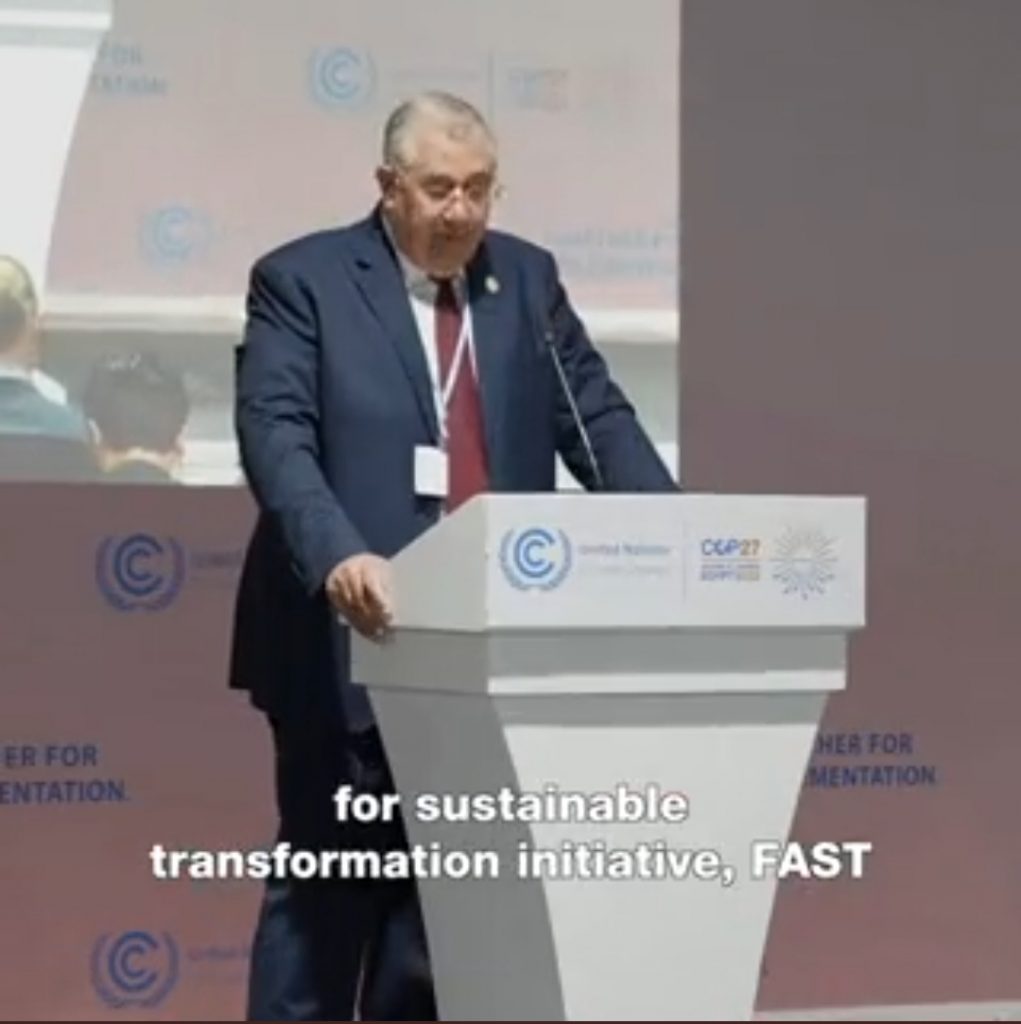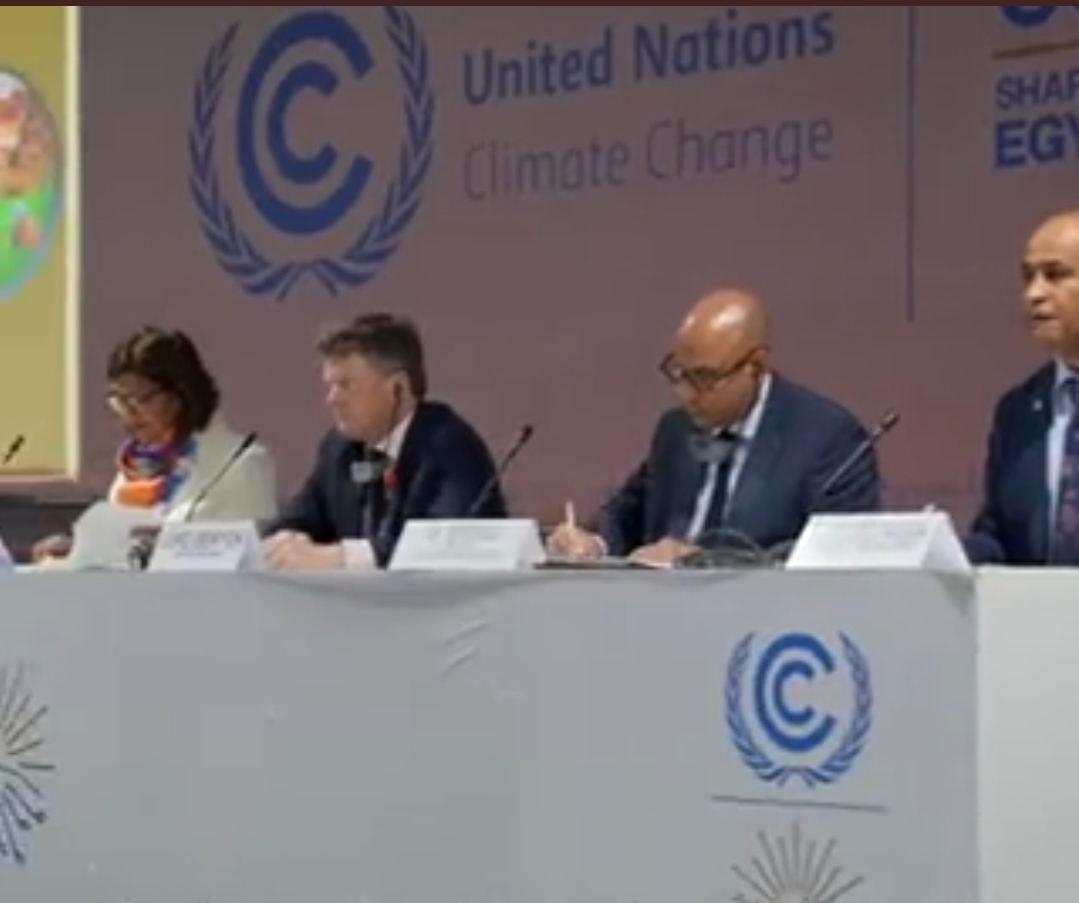From Dare Akogun, Egypt
With global population reaching 8 billion, delegates at the 2022 United Nations Climate Change Conference (COP27) are calling for a transformation of the journey from farms-to-families to ensure food systems can feed everyone.
At the opening session of the Adaptation and Agriculture thematic day, the Egyptian COP27 Presidency in close collaboration with the Food and Agriculture Organization of the United Nations (FAO) and other stakeholders launched the Food and Agriculture for Sustainable Transformation initiative (FAST).
FAST comes at a time when the risk of hunger and malnutrition among the most vulnerable groups is getting worse and the world’s agrifood systems are increasingly impacted by climate change variability and extreme weather events.
This year alone has been devastating for food security as 37 million people face starvation in the Greater Horn of Africa after four consecutive droughts; in Pakistan unprecedented floods battered the country’s major agricultural regions; and record-breaking temperatures throughout Europe led to drastically reduced crop yields.
Russia’s war in Ukraine has caused global shortages and price hikes in wheat, oilseeds and fertiliser, underscoring the fragility of the fossil-fuel dependent food industry that has sacrificed diversity, sustainability and resilience for mass production and profits.
COP27 President Sameh Shoukry said: “As we reach a milestone in human development, we must ensure that our food systems are equipped to provide communities around the world with food that is produced in an inclusive, responsible, and sustainable way.

“With 43 million people suffering of hunger each year, this is a wake-up call for implementation. Initiatives such as FAST are critical in today’s world, where geopolitical shifts and extreme weather events can cause massive disruption to food supply chains that hurt the world’s poorest and exacerbate hunger and malnutrition,” he said.
It is estimated that the agriculture and land use sector received $122 billion in financing between 2000 and 2018, representing 26 percent of the global climate finance flows to all sectors.
Over the course of the day, several sessions and new initiatives will highlight the way forward on adaptation and climate resilient agriculture.
By dedicating an entire day to Adaptation and Agriculture, COP27 is bringing together diverse voices from policymakers, scientists, researchers, civil society, and government, who can share their successes and help communities that also need to achieve their sustainable development goals.

